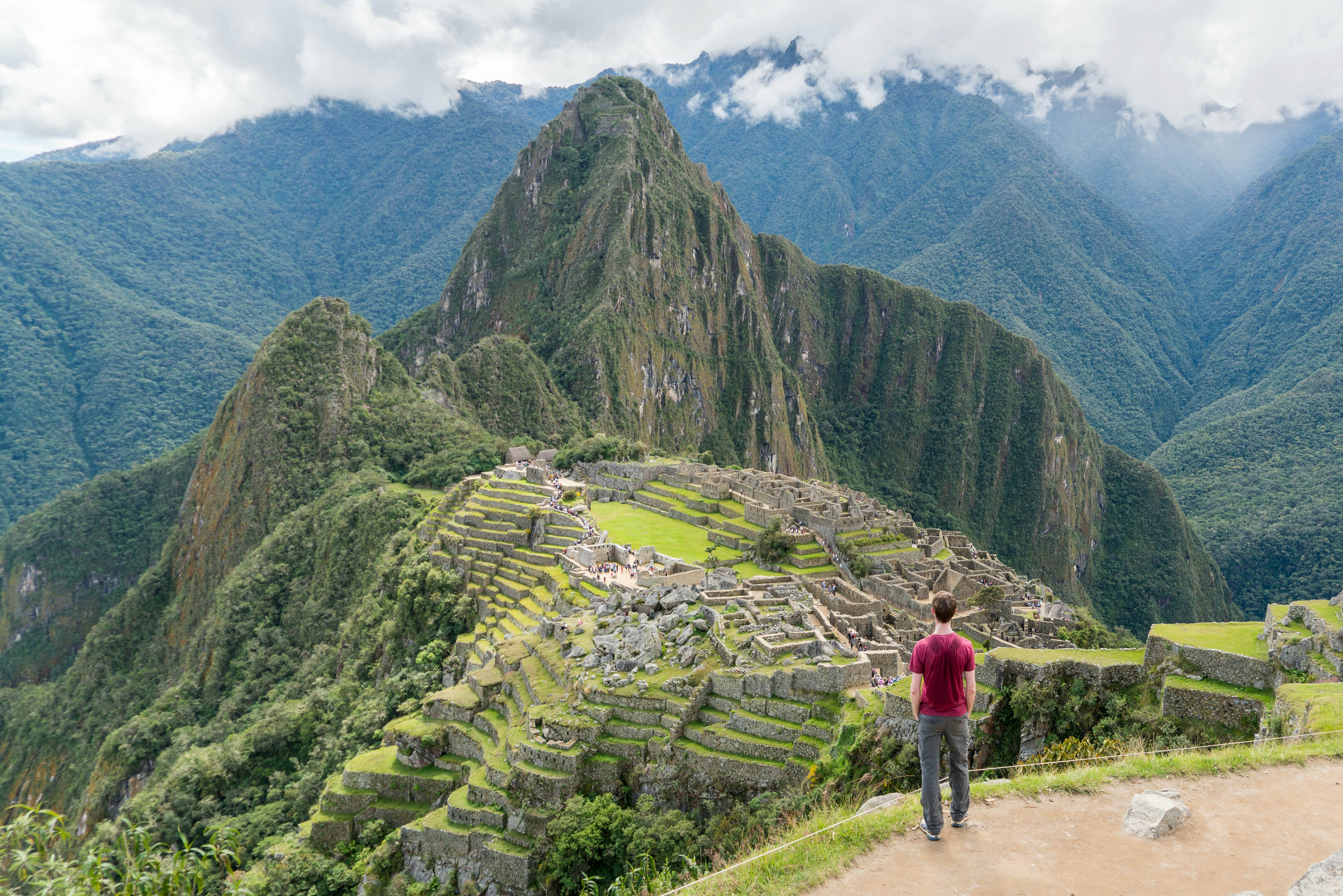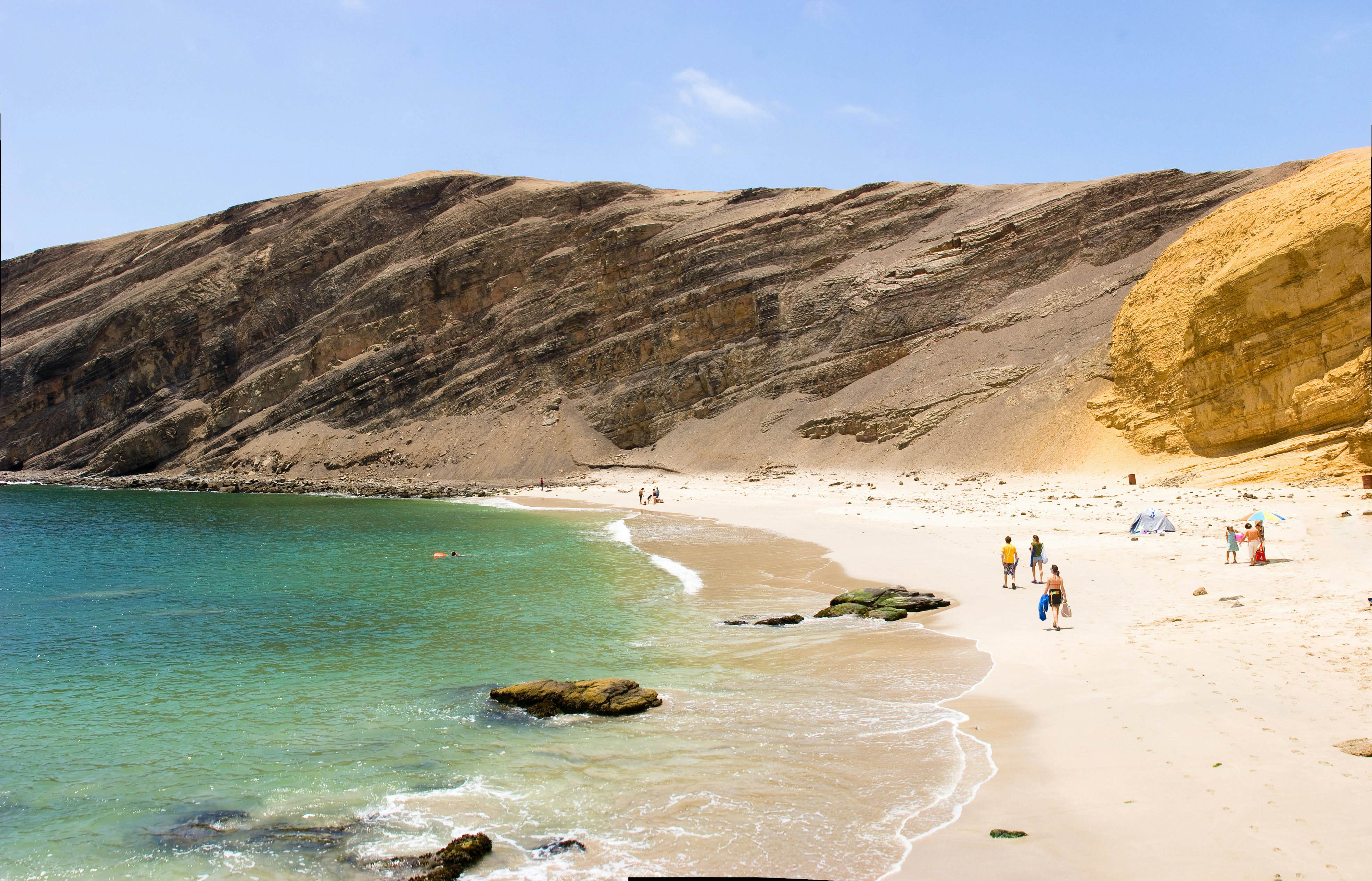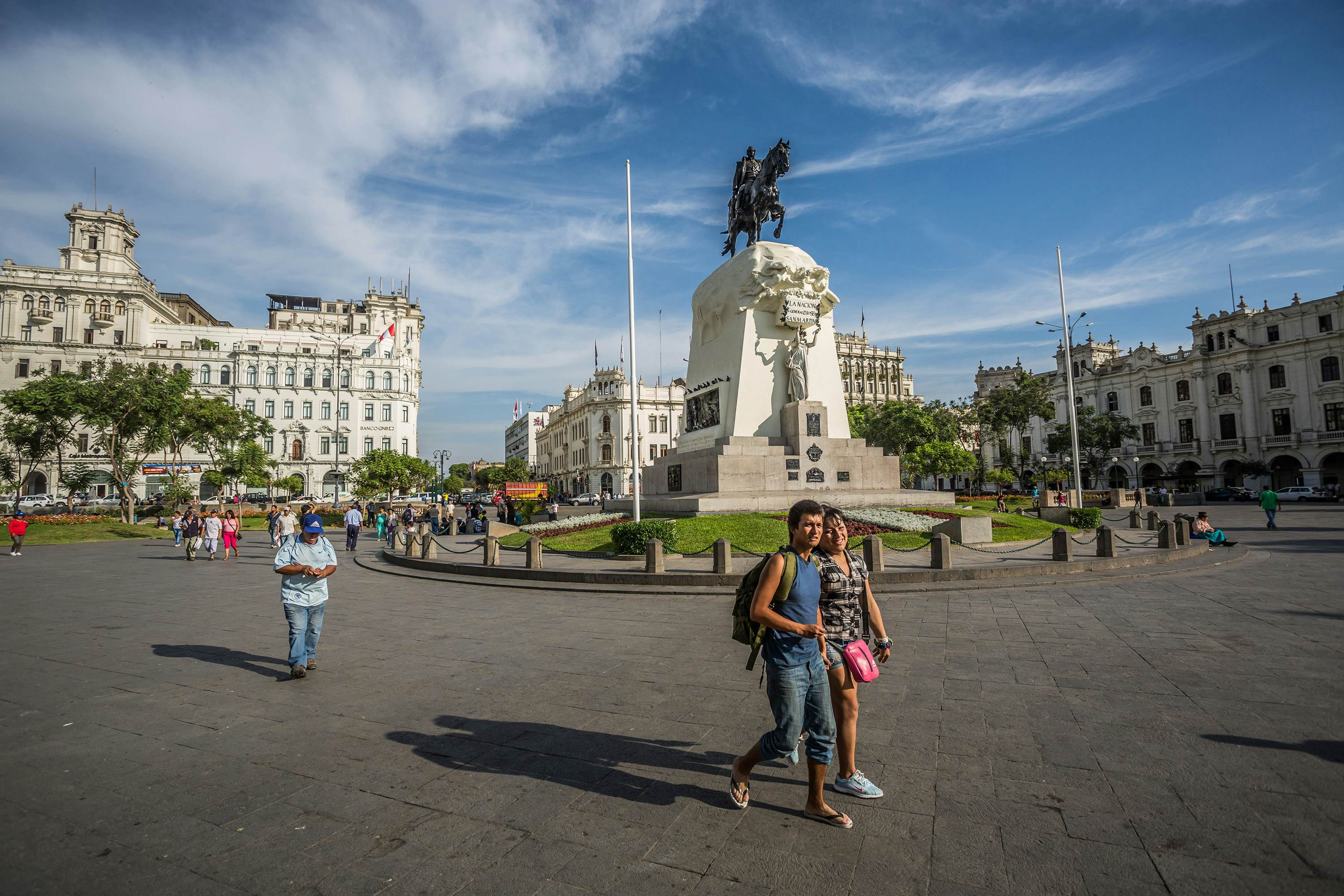Whether you’re visiting Lima as a destination in its own right or here for a brief stopover before heading on to Cuzco and the Andes, there’s no bad time of year to visit.
There’s usually something on the cultural calendar each month and the City of Kings serves up world-renowned restaurants, top museums, and direct access to the Pacific Ocean all year round.
However, Peru’s capital is at its best and most beautiful in the summer (December-March), when the beaches fill up by day and the bars spill out into the streets by night.
That said, Lima tends to see a greater spike in tourists during the winter (June to August) as it’s the driest time to hike to Machu Picchu.
But even when fog cloaks Lima and the city skies turn gray, numerous festivals between July and October tend to liven the mood. Here’s our guide to the best times to visit Lima.

The high season (June–August) is the best time for festivals and slow travel
Although Lima’s winter months see hordes of tourists, few visitors plan on spending a significant time in the capital. Instead, most pay a flying visit before heading off to explore Machu Picchu and other wonders in the Andes, as the dry winter weather is ideal for hiking in the mountains.
Nevertheless, with so many visitors in town, prices are high and you’ll need to make reservations at hotels and high-end restaurants in advance.
Towards the end of June, days become shorter and the skies become more gloomy, making this a good time to visit Lima’s museums and free galleries and sample a handful of the world’s top restaurants.
The city hosts Lima Pride Week (late June to early July) around this time too. Average temperatures hovering around 20ºC (68ºF) – bike rides and strolls along the malecón (waterfront) are still an enjoyable way to keep busy.
In mid-winter, the city starts making preparations for the annual celebration of Peru’s independence on 28 and 29 July.
You will notice a tangible sense of glee among locals, so take advantage of this spirit of patriotism and chat with vendors at markets and patrons in cafes to learn more about Peru’s culture and heritage. Lima stages a grand parade near Miraflores’ Parque Kennedy.

The shoulder seasons (September–November and April-May) are best for sunshine and budget travel
After the heat of January, February and March has worn off there is a lull in tourism in Lima – just before peak season ignites. Another quiet period marks the transition from the cool winter to the warm, humid summer. The beauty of visiting Lima during either of the two shoulder seasons is the chance to save money.
Reservations at top-ranked restaurants are easier to come by, prices in hotels take a slight dip and the odd burst of sunshine may just shine in your direction. In March, the fall equinox takes place in the southern hemisphere.
Semana Santa (the week leading up to Easter) is a big holiday domestically and hotel prices skyrocket.
In April, falling temperatures and cooling waters in the Pacific Ocean make April a good month to paddle board or kayak without rubbing elbows (or oars) with lots of other people. During the second shoulder season (September–November), the bulk of the hiking tourists have been, emptying central areas of Lima.
This is a good time to consider a day trip to Reserva Nacional de Paracas to see sea lions and get a welcome dose of Vitamin D.
October is a big time for religious celebrations. Catholics wear purple in tribute to a famous painting of Cristo Moreno that miraculously survived multiple earthquakes. Try and find some traditional turrón de Doña Pepa (a sprinkle-topped, anise-flavored cake). to eat. It’s only served during this time of year.

The low season (January–March) is the best time for sunny weather in Lima
While the tourist crowds stay away, Lima’s 10 million or so residents come to life during the summer months. From January to March, the sun shines brightly in clear skies, fooling visitors into thinking that Lima is like this all year round. Do as locals do and get active by surfing, paddle boarding, or kayaking along Lima’s coastline.
February is the hottest month of the year in Lima, and also the month of carnavales in Peru. The days of city-wide water fights in the capital are long gone (and now officially prohibited), but many bars and live music venues in Lima schedule special events, promotions, and concerts to mark the traditional festivities.
Consider exploring the beaches of the southern Lima region or taking a hiking day trip at this warm time of year.
Locas pack out cevicherias (ceviche restaurants) offering fresh seafood plates between January and March as the daytime temperature hovers around 24ºC (75°F), matched with a high humidity level that becomes almost unbearable in February.
Sunny days lead to incredible sunsets, followed by warm nights that are great for going out to discover new watering holes and live music venues with an icy brew or pisco cocktail in hand.
This is also a great time of year to look for cheap holiday rentals in Lima, as many upper-class Limeños migrate to their beach houses for the season.



